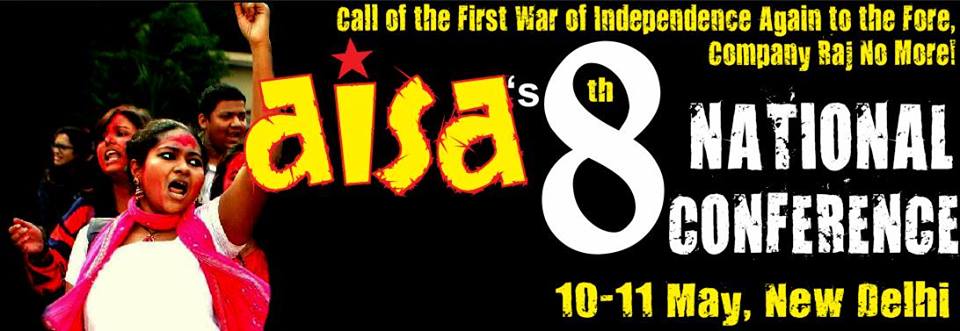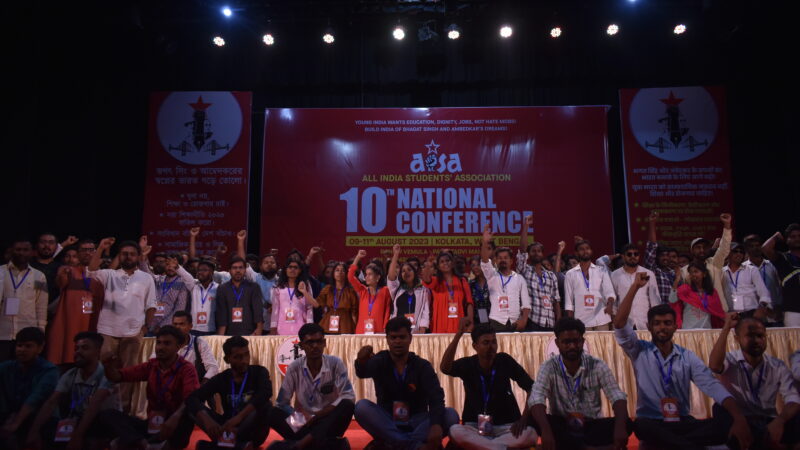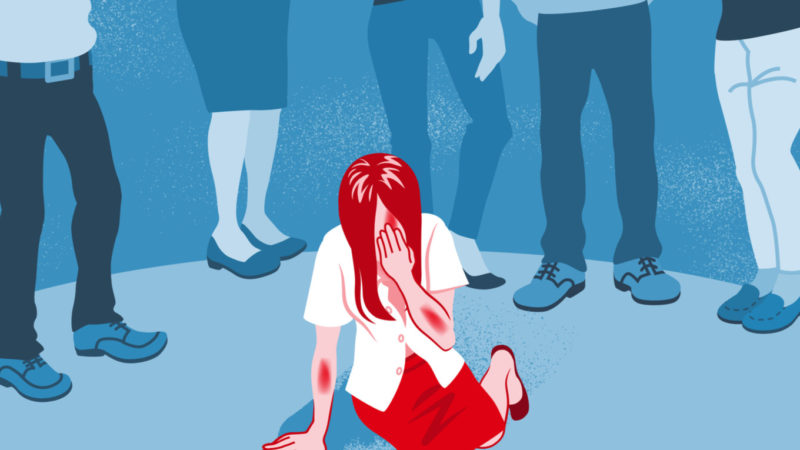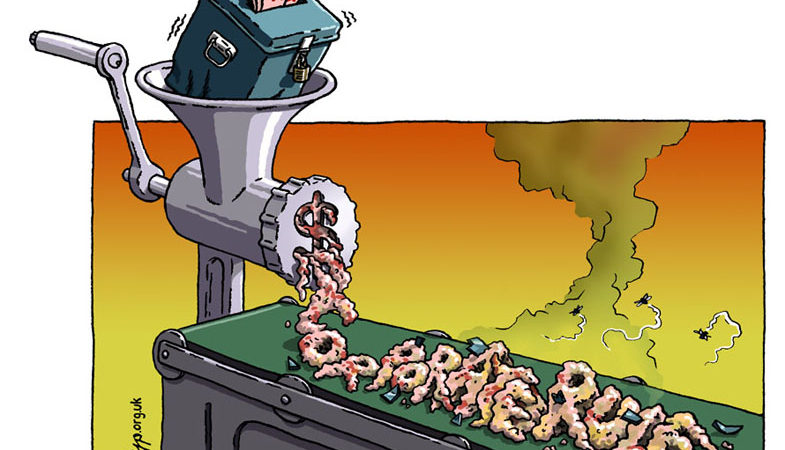Uphold Academic Autonomy, Reject Commercialisation of Education
Education in India, particularly higher education, has several major problems. The three main problems facing higher education in India are inequitable access, falling standards and scarcity of public resources. Several legislations and far-reaching policy changes which the Modi government is proposing cannot solve these problems of higher education; in fact they will exacerbate the existing problems. Two years back, the disastrous FYUP (four-year undergraduate programme) was introduced. It was finally rolled back after a massive student movement in Delhi in which AISA played a crucial role. But, after the disastrous FYUP, we are now being faced with several other equally problematic proposals in the education sector. The ‘Choice-based Credit System’ (CBCS) is being forcibly introduced, as well as a common ‘Central University Act’; there are ongoing attempts to replace the UGC and the entire central funding mechanism with the so-called ‘RUSA’ (Rashtriya Uchchatar Shiksha Abhiyan).
All these policy changes being mooted, need to be understood in the larger context of the concerted attempts to convert education into a tradable commodity, rather than as a tool for social and economic transformation of society.
‘Binding Commitments’ in WTO to make Education a Tradable Commodity:
In India, various governments in power – whether run by the UPA or the NDA – have been trying their level best to implement this crucial and dangerous paradigm shift in the education sector. The previous UPA government had voluntarily ‘offered’ to bring education under the WTO/GATS regime. However, it is yet to become a binding ‘commitment’. Right now, frantic moves are on to make it a ‘binding commitment’ in the coming 10th WTO Ministerial Conference to be held at Nairobi, Kenya during 15-18 December this very year. Once the Govt of India makes the global ‘commitment’ for market access in education, the foreign and domestic corporate houses who ‘trade’ in education will acquire a virtual free hand, spelling doom for the interests of the students and teachers of the country. All pressure must be built, right now, to ensure that the Govt of India withdraws its ‘offers’ given to WTO for Higher Education.
Today, in the name of ‘reforming’ education, the concerns of expansion, inclusion, affordability, quality and access are being completely swept away. Let us understand the content and intent of some of the recent policy assaults in the education sector:
Central University Act: The Dangerous Agenda ‘Uniformity’
“Bhasha Anek, Bhav Ek. .. Boli Anek, Svar Ek. .. Rivaj Anek, Sanskar Ek. Karya Anek, Sankalp Ek… Rah Anek, Manzil Ek… Chehre Anek, Muskaan Ek” – thus spake Narendra Modi
In an India bursting with diverse cultures and peoples, the RSS, BJP and their man Modi wants to impose one ‘emotion’, one ‘voice’, one ‘culture’, one ‘goal’, even one ‘smile’!! No surprise then when the same group tries to also argue for ‘one University Act’ that has ‘one syllabus’, one ‘entrance system’, and one ‘recruitment pattern’. Here is how this ‘Central University Act’ looks like:
-
Common Syllabus: According to the proposal, all Central Universities will have a common syllabus, across the country. Forcing such a common syllabus will kill the possibility of universities creatively fashioning courses and assessments that makes for the unique profile of each university!!
-
Common Entrance Test: Such a proposal, which is based on a single, tailor-made entrance exam across the country, does not allow institutions to design their admission process keeping in mind the divergent nature, requirements and specificities of their research and academics, responding to diverse social needs and priorities.
-
Centralised Recruitments: This will mean that the Central Government will have a free hand to dictate faculty appointments of its ideological/ political choice.
-
Faculty Transfer: The provision to ‘faculty-transfer’ will act as a weapon to keep the upright faculty members who ‘do not fall in line’ under permanent threat. Moreover, especially for a research institution, the provision of faculty transfer makes no academic sense. In case of a transfer, what will happen to the students and researchers working with the faculty concerned?
Instead of these proposals which go against academic freedom and autonomy, plural and critical quest for knowledge, the need of the hour is to put in place more inclusive and diverse classrooms, systems of accountability and student feedback. These desperate attempts to ‘saffronise’ and ‘Modi-fy’ education must be resolutely defeated!!
‘Cafeteria-Ization’ of Higher Education: Choice Based Credit System: An illusion of ‘choices’
In yet another move aimed at turning students into guinea pigs of ill informed educational experiments, a choice based credit system has been imposed on university students. As per the UGC guidelines, “The CBCS provides choice for students to select from the prescribed courses (core, elective or minor or soft skill courses)”. Additionally, “the choice based credit system provides a ‘cafeteria’ type approach in which the students can take courses of their choice, learn at their own pace, undergo additional courses and acquire more than the required credits, and adopt an interdisciplinary approach to learning”. However, a close examination of the programme reveals a near absence of ‘actual choices’.
-
If indeed CBCS is about opting for ‘additional courses and acquiring more than required credits’, then the first level of choice should be the choice ‘to opt’ or ‘not’! A student who wants to study more than is required for the completion of degree should not disallowed to study more, whereas a student who does not feel the need to study more should not be forced to study more. The very fact that it is compulsory for a student to opt for a course under the CBCS, shows that there exists no real ‘choice’.
-
Regarding choice of courses, as the UGC itself suggests, in CBCS, the students would be able to choose the course they like in a cafeteria like way! However, does this choice really exist for the students? The choice would exist if there was no “first come first serve basis” or “merit-basis” norm to it and if each and every student could opt for the preferred subject, irrespective of the number of students opting for a given subject and there would be enough space and teachers for the purpose. At a time when the universities are already being forced to fall back on contractual and ad hoc teachers to meet the teaching requirements of existing courses, where is the actual faculty and infrastructure for ‘choice based courses’? It almost appears similar to granting someone a blank cheque when one has very little or no money in the account. Before embarking on any such path, should not the first step be expansion and enrichment of the infrastructure required for it!
-
CBCS guidelines also make a reference to “learning at their own pace”, however it is anybody’s guess, that in a semester system where there are barely 3-4 teaching months in a semester, how much of a ‘choice’ exists for a student to learn at their pace!!?
The CBCS thus offers neither ‘choice’ nor ‘quality’ to the students, who are forced to opt for it.
Let us also understand, that this assault of CBCS is NOT only on Central Universities; it is also going to be on State Universities too – so students of every college and university in this country need to resist the assault of CBCS and its implications for quality education.
Rashtriya Uchchatar Shiksha Abhiyan (RUSA): Alongside the Central Universities Act and the CBCS, moves are also afoot to dismantle the funding duty of UGC and push through the so-called Rashtriya Uchchatar Shiksha Abhiyan (RUSA). Imposition of the RUSA will have a huge impact on the funding of educational institutions, and this proposal will clearly pave the way for reduced funding and autonomy for non-Central Universities.
An Ongoing Onslaught on Campus Democracy-Lyngdoh Committee Recommendations :
As one ill intentioned programme is imposed one after another, the onslaught on students’ democratic spaces continues abated. The Lyngdoh Committee Recommendations (LCR) continue to be used as a strategic tool to crack down students’ movements even as the use of money and muscle power in most campuses continues! In some colleges and Universities such as in the Presidency college in Kolakata, LCR like restrictions on student union elections are campus democracy are being imposed by University administrations even though LCR is not ‘officially’ imposed.
The Lyngdoh Committee Recommendations (LCR) were imposed in 2006 with the two-fold claims of (a) ‘regularising’ student union elections in all campuses and (b) ‘freeing student politics from the ills of money-muscle power’.
The restrictive and undemocratic LCR code include: age restrictions, restrictions on the number of times candidates can contest, restrictions of so called ‘criminal charges’ and even ‘disciplinary actions’ on students from participating, and involvement of the university administrations in the conduct of elections.
But our experience of past eight years have shown that LCR has failed in both its stated claims of either ensuring regular, mandatory elections in all campuses or controlling money and muscle power. Students’ Union elections continue to be denied in hundreds of campuses including in central universities like BHU and Jamia. Where elections are held, despite the LCR, they continue to be dominated by money-muscle power as in DU or Allahabad University.
In contrast, the Court and the govt used the LCR code to scuttle the JNUSU constitution, which had put in place one of the most democratic, peaceful, accountable and vibrant models of students’ union elections in the country for decades, much before Lyngdoh recommendations came in force. This dichotomy proves the REAL PURPOSE of LCR ‘codes’: to tame Students’ Unions in times of resistance to privatization. In the name of curbing criminalization, University Administrations can use LCR to first take disciplinary action against student leaders, then prevent them from contesting elections.
It is Real Democratic Culture and Not LCR ‘Codes’ which Can Curb Money-Muscle in Campuses: Student politics in itself is not the source of money and muscle power. Ruling class politics and its money power corrupts both Assembly and Parliament elections and SU elections too. The only real way in which campuses can be kept free of these ills, is if the student movement actively confronts and challenges the ruling class politics, with a democratic political culture of its own – of vibrant debate and transparent political activity that can fix accountability of student representatives. This is precisely how the student movement has achieved an election process free of corruption and violence (as in JNU), long before Lyngdoh-style ‘codes’ came into force and what Lyngdoh style ‘codes’ have failed to achieve in all other campuses (from DU to Allahabad) even after it was imposed.
Despite representation and protests by students and student unions, the current MHRD refuses to even review the LCR after so many years of its implementation, though a clear provision exists in the LCR for a review.
In light of these combined assaults of govt’s moves to sign the WTO ‘commitment’ for making education a tradable commodity, the common Central Universities Act, the CBCS, RUSA, and curbing of campus democracy through Lyngdoh style Recommendations, we need a united and robust resistance to defend the inclusive and democratic character of education.







One thought on “Uphold Academic Autonomy, Reject Commercialisation of Education”